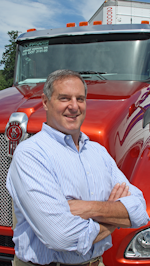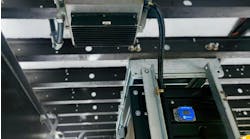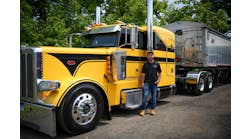Significant changes are occurring with transport refrigeration units (TRU) as technological advances continue and more mandates to reduce TRU engine emissions are being enacted.
In January 2013, new engine emissions regulations from the U.S. Environmental Protection Agency will go into effect which will have a big impact on TRUs.
To get some insight into how TRU technology will be changing in response to this, and how these changes will affect TRU maintenance and repair, I visited with Doug Lenz, director of product management for Thermo King. A brand of Ingersoll Rand, Thermo King is a manufacturer of temperature control systems for a variety of mobile applications.
Compliance focus
Given the significance of the impending emissions changes, Lenz feels there is an opportunity for many engine technologies, emission controls solutions and other new technologies to emerge.
“Customers will benefit because there will be more data available than they have historically had on transport refrigeration units,” he says. “They will be able to access diagnostic information for TRUs similar to that which they can get on their heavy duty tractors. This includes information such as fuel consumption.”
With the introduction of the heavy duty diesel truck engine emission regulations, it took several years to see fuel economy advancements. While TRU suppliers like Thermo King remain very cognizant of the importance of fuel economy, Lenz expects that the overall industry focus for TRUs will initially be on compliance.
“Because of the increasing price of diesel fuel and the focus on sustainability, we also see a continued trend in customers looking at non-diesel alternatives for trailer units, truck units and APU units,” he says. “This is true whether the vehicle is in transit or is stationary.”
Skill sets
Thermo King is also seeing a growing list of customers who are adding remote systems to monitor, diagnose and wirelessly make changes as such features can significantly increase uptime.
These systems will demand higher skill levels from technicians who work on refrigeration units, and they will need significant new training and tools to maintain the solutions that support emissions compliance, notes Lenz.
This will compound the shortage of TRU technicians, a situation that has been going on for a number of years now. Over the next five years, Thermo King anticipates the technician shortage will continue, and maybe worsen, because so many high schools have moved away from vocational learning.
Technician development
To help meet the need for TRU technicians, in addition to offering onsite education at its Minneapolis training center, Thermo King offers a Learning Management System (LMS), with training starting at the technician level and going up through the management level. The company recently launched an all-new LMS called Thermo King University (TKU) that includes many more on-demand, self-paced learning offerings to cover everything from Thermo King-specific information to courses on business and desktop computing skills.
Lenz says maintenance operations and fleets ought to work to entice individuals to be TRU technicians, “as this can be a great job market. Once they have obtained the skills needed to do the job, they can anticipate an ongoing need for their skills.”
One way to develop TRU technicians is to reach out to local technical high schools and technical colleges and use these avenues as resources to recruit young and upcoming talent, he says. Another is to offer to provide financial support for education. For example, pay for tuition and then require that an individual work for a period of time.
Keep up
Trying to predict the future is like trying to drive down a country road at night with no lights while looking out the back window, management consultant Peter F. Drucker once remarked.
While no one can foretell how TRUs and their maintenance, service and repair will change as time goes ever forward, two things are certain.
One is that the task of keeping up with TRU developments will be never-ending.
The other is that those who are best at taking advantage of these developments will have the most successful and profitable operations.
I welcome your thoughts and comments.




